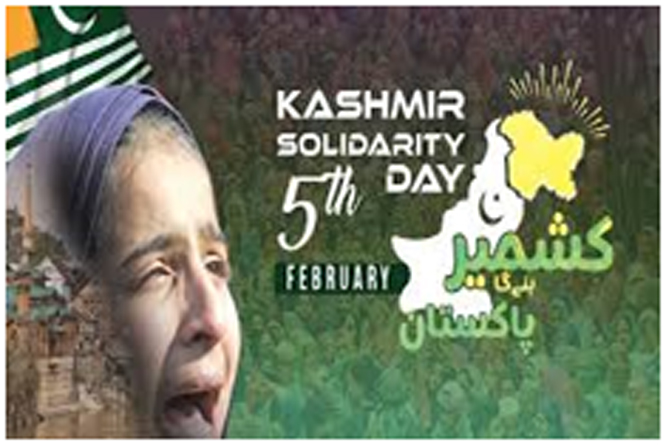
Online Desk: The people of Indian illegally occupied Jammu and Kashmir (IIOJK) continue to endure daily brutality, their plight largely ignored by the global community. IIOJK is one of the most militarized regions in the world, where repression and human rights violations persist with alarming regularity.February 5th, observed as Kashmir Solidarity Day, serves as a solemn reminder of the sacrifices made by the martyrs of the Kashmiri freedom movement. Meanwhile, the world’s largest democracy stands accused of orchestrating a demographic shift, seeking to reduce the Muslim majority in IIOJK to a minority through systematic oppression.
Pakistan continues to highlight Kashmiris’ plight at global forums such as the United Nations General Assembly (UNGA), the Human Rights Council (HRC) and the Organization of Islamic Cooperation (OIC). Through persistent diplomatic efforts, Pakistan has kept the issue alive, rallying Muslim nations to support the Kashmiri struggle. Meanwhile, Kashmiris remain steadfast in their pursuit of freedom, despite enduring some of the world’s worst human rights violations. Extrajudicial killings, enforced disappearances and sexual violence are rampant. Night raids, arbitrary detentions and curfews have become routine. Freedom fighters are labeled as terrorists, but in reality, they are resisting a brutal occupation.
The Kashmir dispute is not an internal matter of India, it is a human rights crisis that demands international intervention. Major global actors, including the United Nations and the European Union, often present themselves as champions of human rights, yet they turn a blind eye to the daily atrocities in Kashmir. This selective ignorance, driven by economic and strategic interests, has been a major obstacle to resolving the conflict. The world today is increasingly realist, liberal institutions are used more for political leverage than for genuine humanitarian concerns.
The failure to resolve Kashmir dispute after 77 years raises critical questions about the very legitimacy of the United Nations. The League of Nations collapsed due to its inability to prevent global conflicts, will the UN meet the same fate? Despite multiple UNSC resolutions, the organization has failed to conduct a plebiscite in Kashmir. Between 2000 and 2019 alone, 4,427 Kashmiris were killed. During Maharaja Hari Singh’s rule, over 237,000 Kashmiris lost their lives. Since 1989, more than 96,000 people, including women and children, have been killed. Arbitrary arrests, torture and sexual violence remain widespread, leaving entire communities traumatized.
Every year, on February 5th, Pakistan observes Kashmir Solidarity Day with rallies, seminars and public demonstrations to honor the sacrifices of Kashmiri martyrs. Schools and colleges remain closed and the nation unites to reaffirm its support for the Kashmiri struggle. The unresolved conflicts of Kashmir and Palestine bear striking similarities, both are international crises marked by decades of suffering.





